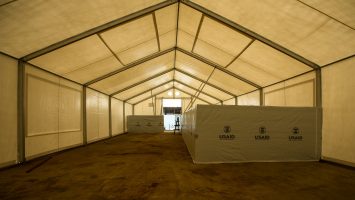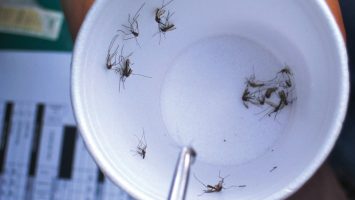Ann H. Kelly is Senior Lecturer in Global Health and Deputy Director of the MSc in Global Health & Social Justice at King’s College London. An anthropologist by training (Cambridge University, 2007), Ann’s ethnographic research has often been intertwined with public health interventions and disease control programmes, particularly in sub-Saharan Africa. She has addressed a number of substantive topics, from mosquito control programmes in urban and rural contexts to emergency clinical trials during the recent West African Ebola outbreak. Much of her anthropological work has unfolded in close collaboration with bioscientists, disease ecologists, entomologists and clinicians. Ann has drawn on these collaborations to develop a number of conceptual innovations in the social-scientific study of global health, ranging from notions of experimental value, the role of ignorance and memory in the sciences, the disentanglement of human and nonhuman species, or the scales of political participation and the emergence of new global health publics.
Ann’s work has received support from wide range of funders including the Wellcome Trust, the UK Economic and Social Research Council and the Bill and Melinda Gates Foundation. Her most recent projects include an Open Research Area European Award to explore the social afterlives and material remains of tropical medicine and an investigation on data sharing practices between research institutions in the Global North and the Global South funded by the Leverhulme Trust.
With funding from the Economic and Social Research Council and in collaboration with the Guinean Ministry of Health and the Sierra Leone Ministry of Defense, since 2014, Ann has worked with an interdisciplinary team to investigate the impact of the Ebola outbreak on health infrastructures and food security in West Africa. She is a member of the steering committee of the UK Ebola Response Anthropology Platform, an initiative jointly funded by the Wellcome Trust and DFID to assist in the containment of the recent outbreak. Ann helped coordinate in-country social scientific capacity and offer rapid advice to public health professionals and clinical research teams, government and non-governmental agencies in how to provide locally appropriate and socially informed interventions. In a similar capacity she has served on the social science sub-committee of the UK Scientific Advisory Group for Emergencies (SAGE) WHO, contributing to recommendations on the ethics of accelerated Ebola vaccine trials and potential post-licensure immunization strategies.
Ann’s current work focused on the notion of ‘emergency research and policy,’ and it builds on nearly a decade of anthropological research centred on the pragmatics of global health in sub-Saharan Africa. This research is grounded in an appreciation for the situated nature of transnational research practices, and is motivated by a desire to strengthen the links that bind global health policy with the communities it is meant to serve.

